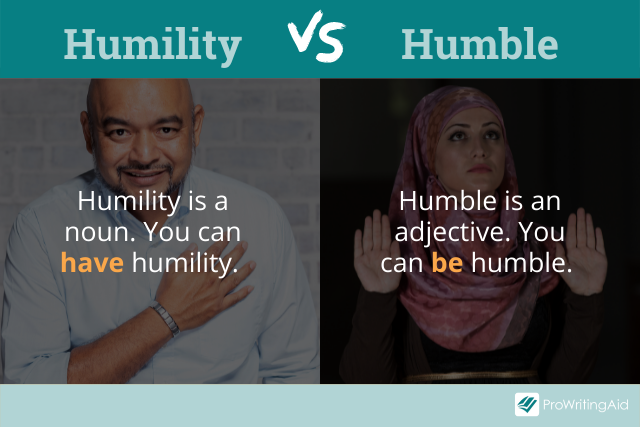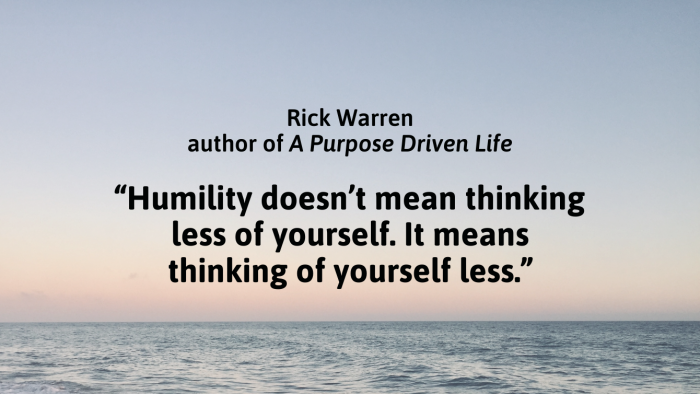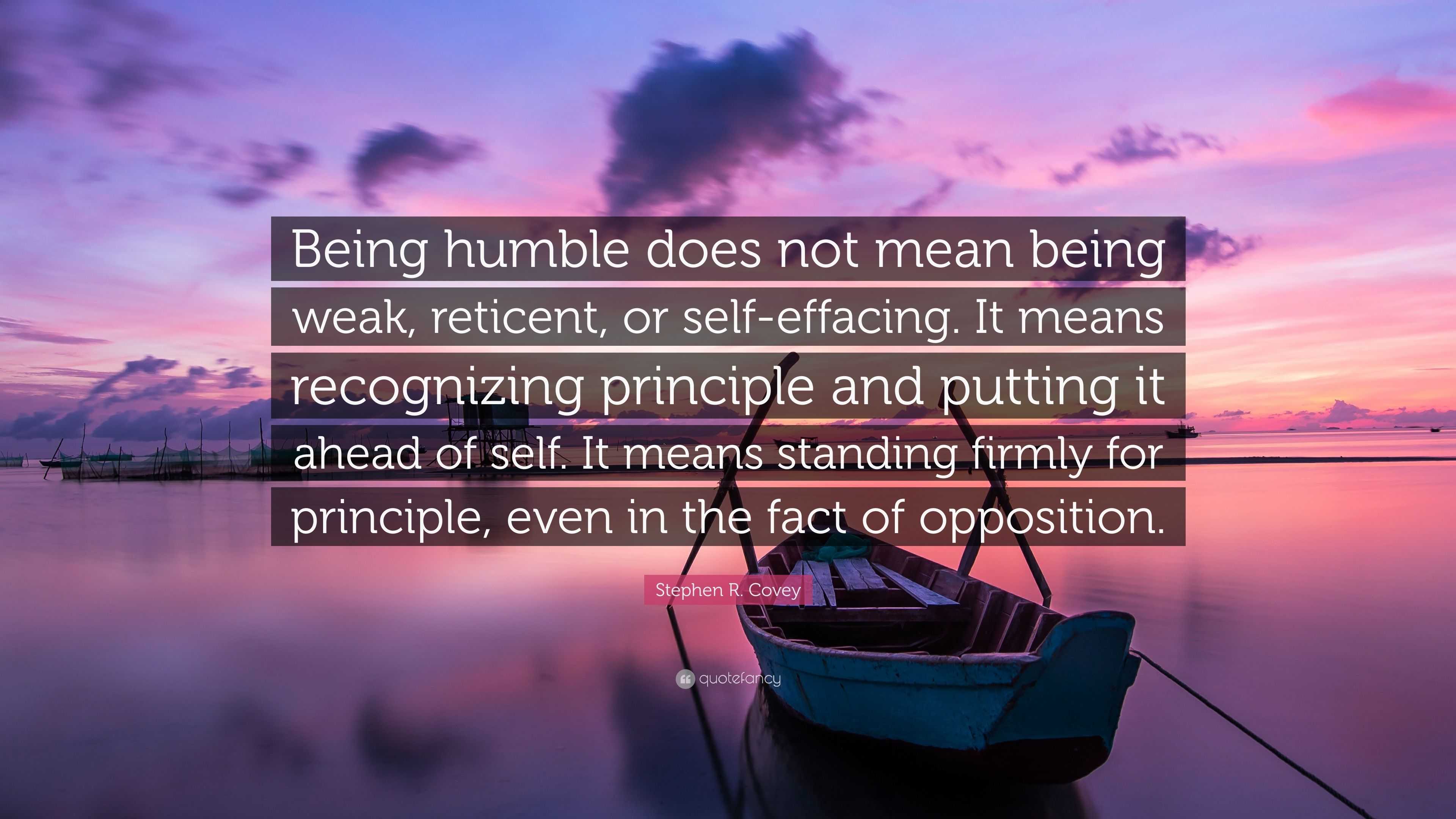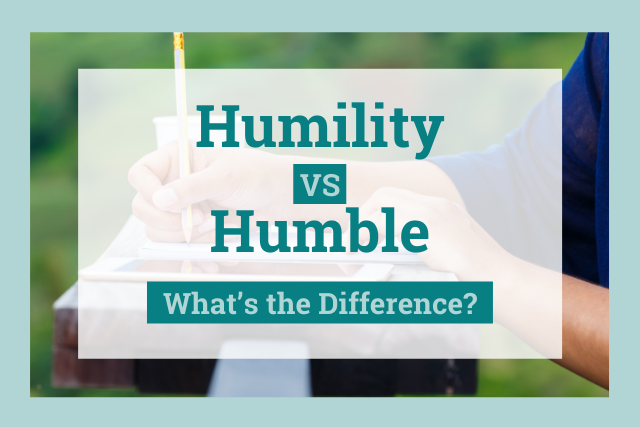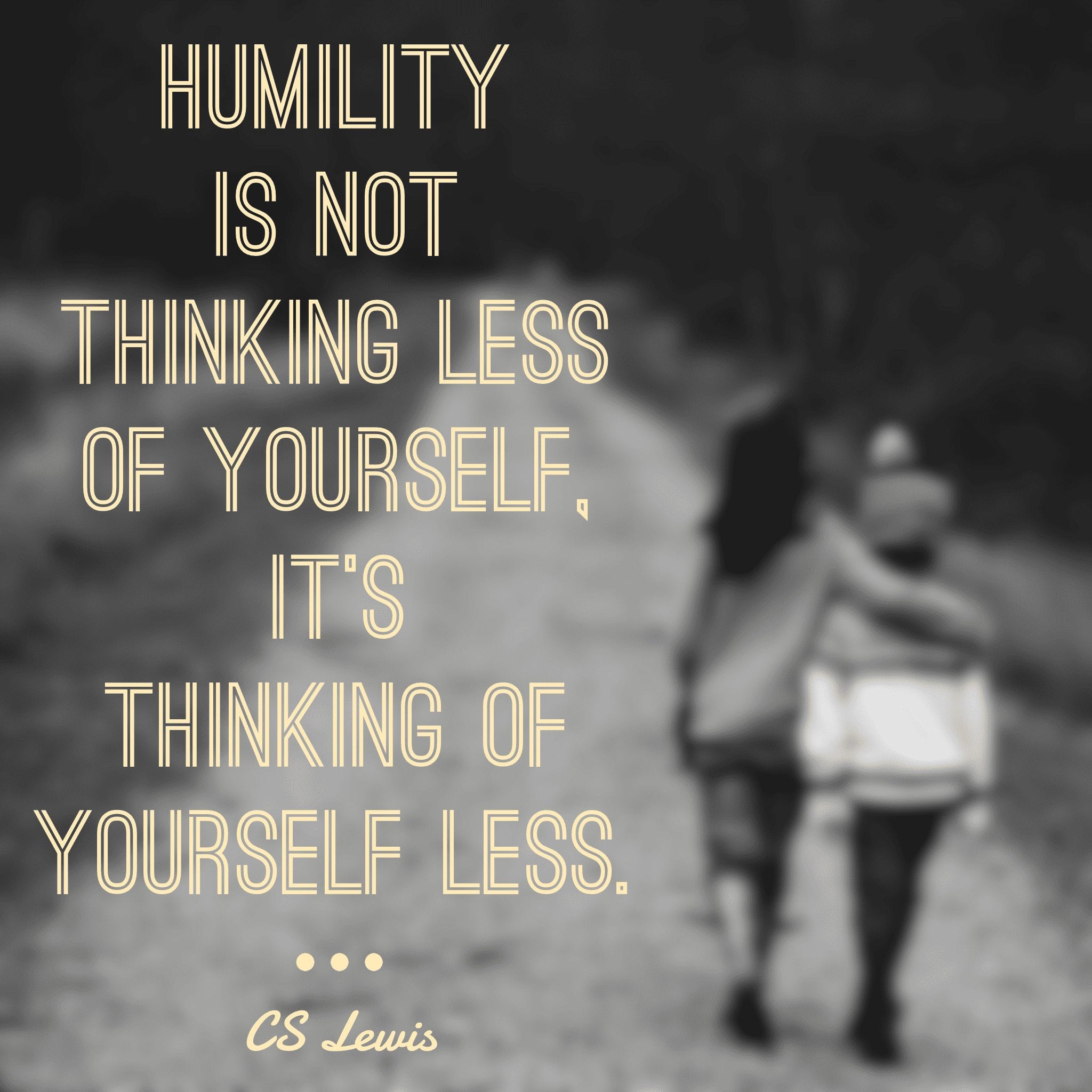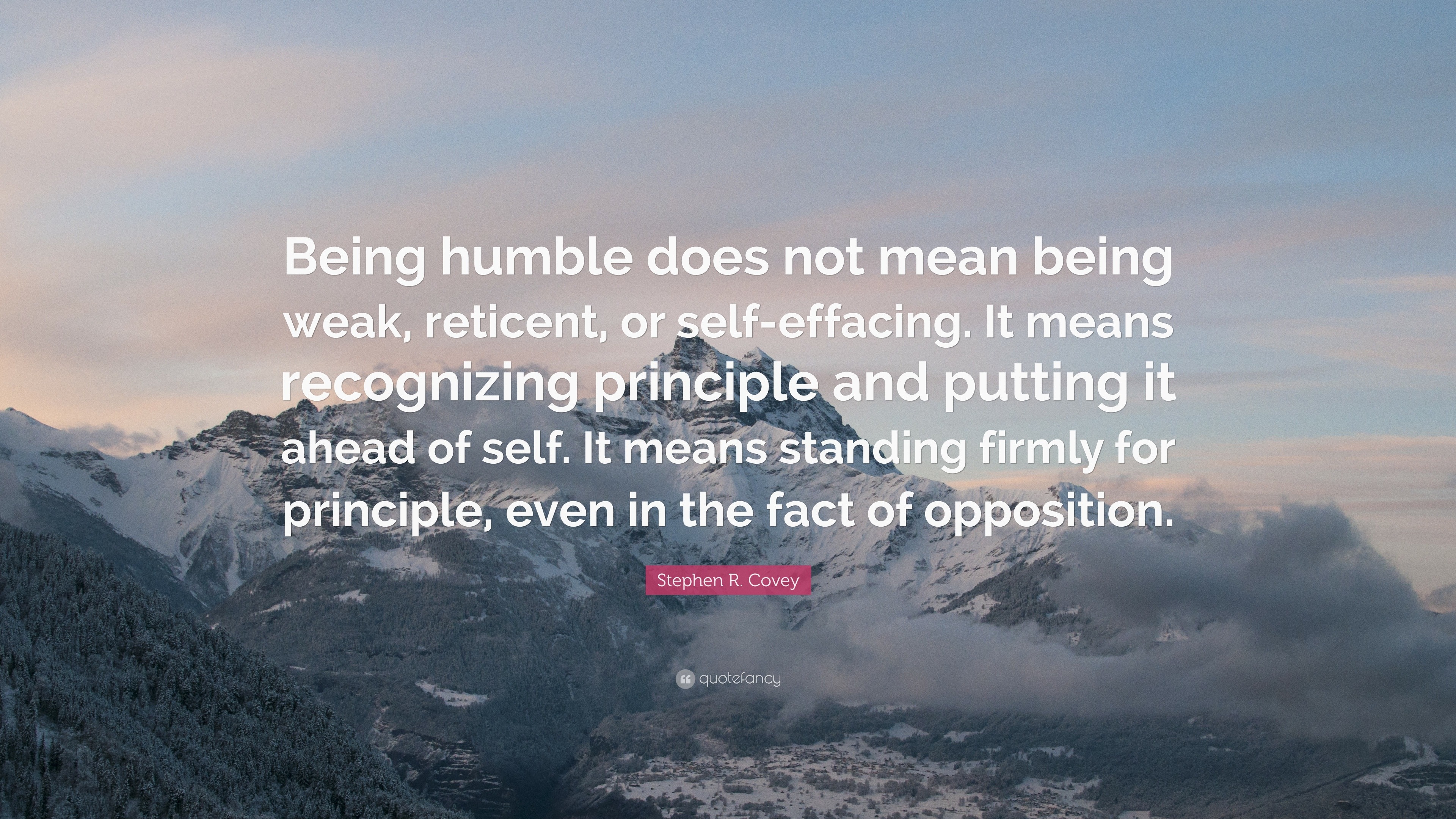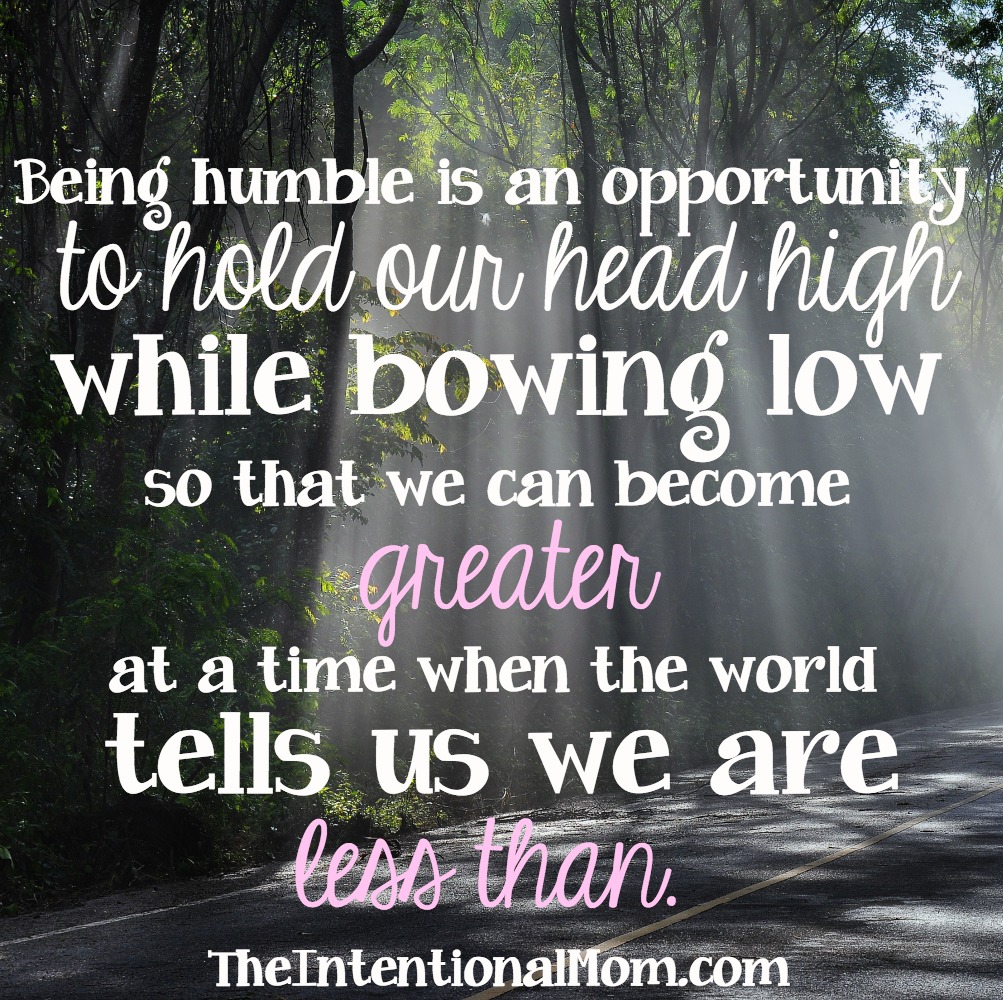What Does It Mean When Someone Is Humble

Imagine a quiet room filled with trophies, awards glinting under soft light, each a testament to remarkable achievements. Yet, the owner, a renowned scientist, speaks not of her groundbreaking discoveries, but of the countless individuals who supported her journey. Her words are filled with gratitude, her demeanor unassuming, a gentle smile playing on her lips as she deflects praise. This is a glimpse into the essence of humility.
Humility, often misunderstood as weakness, is a powerful virtue characterized by a realistic assessment of one's own strengths and weaknesses. It involves recognizing one's place in the larger world, appreciating the contributions of others, and remaining open to learning and growth. It's about acknowledging that success is rarely a solo act and that everyone, regardless of their status, has something to offer.
The Many Facets of Humility
Humility isn’t about self-deprecation or pretending to be less capable than you are. Instead, it's a balanced perspective. It is rooted in self-awareness. According to a study by the American Psychological Association, people who practice humility tend to have stronger relationships and higher levels of well-being.
A core component of humility is recognizing the value of others. It means actively listening to different perspectives, acknowledging their contributions, and showing genuine appreciation for their efforts. Think of Nelson Mandela, whose leadership was marked not only by his unwavering commitment to justice but also by his profound respect for all people, regardless of their background.
Humility also entails a willingness to learn and grow. Humble individuals are open to feedback. They see mistakes as opportunities for improvement, rather than sources of shame. They embrace a growth mindset, constantly seeking knowledge and skills to better themselves and the world around them.
The Counterfeit of Humility
It's crucial to distinguish genuine humility from its counterfeit: false humility. False humility is often a form of manipulation, where individuals downplay their abilities to elicit praise or sympathy. Unlike genuine humility, which stems from inner security, false humility is driven by a need for external validation.
True humility, on the other hand, is not concerned with external validation. It's an internal state of being. It manifests in actions that prioritize others, acknowledge limitations, and celebrate collective achievements.
The Impact of Humility
The impact of humility extends far beyond individual well-being. In leadership, humble leaders foster trust and collaboration. They are more likely to empower their teams and create a culture of psychological safety, where individuals feel comfortable taking risks and sharing ideas.
In society, humility promotes understanding and empathy. It bridges divides. It encourages dialogue, creating space for diverse voices and perspectives to be heard.
Consider the example of Malala Yousafzai, a Nobel Peace Prize laureate. Despite her extraordinary courage and advocacy for education, she remains grounded and humble. Her focus is always on the cause, rather than on herself.
Cultivating Humility
Humility is not an innate trait, but rather a virtue that can be cultivated. It requires conscious effort and a willingness to challenge one's ego.
Practicing gratitude is a powerful way to foster humility. Taking time to reflect on the good things in your life and express appreciation for the people who support you can shift your focus from self-centeredness to gratitude.
Seeking feedback from others and being open to criticism can also promote humility. It allows you to see yourself through the eyes of others and identify areas where you can improve. Furthermore, engaging in acts of service can help you connect with others. It reminds you of your shared humanity.
In a world often dominated by ego and self-promotion, humility stands out as a beacon of hope. It reminds us of the importance of connection, empathy, and continuous learning. It’s a journey of self-discovery, where one learns to appreciate the beauty of imperfection and the strength of collaboration. Embracing humility allows us to create a more compassionate and equitable world, where everyone feels valued and empowered.
